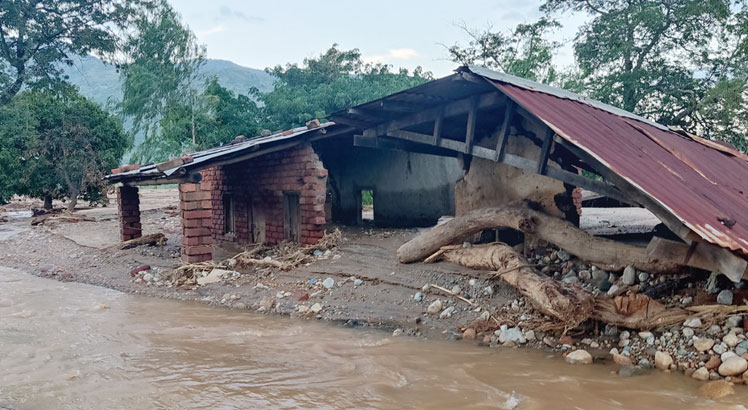Chiefs’ demands slow relocation exercise—Dodma
The Department of Disaster Management Affairs (Dodma) says the land compensation claims by some traditional leaders have affected the relocation exercise of people who were affected by Tropical Cyclone Freddy.
In an interview yesterday, Dodma spokesperson Chipiliro Khamula said the relocation exercise banks on some well-wishers such as chiefs to provide free land for relocation, but most traditional leaders demand compensation before releasing their land.

He said the department planned to decommission all the evacuation camps and relocate some Cyclone Freddy survivors to safe places by August 31 this year.
Said Khamula: “Currently, there are about 50 000 people still living in camps, but its tricky [to relocate survivors to safe places] because in some instances chiefs are willing to provide land of course at no cost, where as in some cases, they are demanding some compensation.
“But this is something which has to be sorted out within the districts because the district council is supposed to engage the chiefs and provide the guidance.”
Khamula could, however, not indicate how many survivors have so far been relocated to safe places, saying the department will have a clear picture by August end.
Dodma deputy director of disaster preparedness Fredson Chikuse is on record as having said protracted negotiations on land issues have delayed relocation of people displaced by Cyclone Freddy currently living in disaster-prone areas.
He said the negotiations involve multiple stakeholders, including the Ministry of Lands, district councils and traditional authorities (T/As) in affected areas.
“The issue of relocation must be done systematically since we are dealing with land ownership issues,” he said.
In early March this year, the country experienced one of the worst tropical cyclones on record which negatively affected people’s livelihoods and the country’s socioeconomic infrastructure, pushing more people into poverty.
An estimated 2 267 458 people in 16 districts were directly affected, including 659 278 people who were displaced (336 252 female; 323 026 male), 679 killed, and over 530 declared missing by mid-March 2023.
The devastating heavy rains and floods caused substantive damage and losses to social services and infrastructure, among other sectors.
The disaster’s impact was the highest in the housing sector, with about 260 681 houses damaged or destroyed.
In its post-disaster assessment, government announced that about 63 health facilities were damaged while 944 784 water, sanitation and hygiene facilities were destroyed.
The Tropical Cyclone Freddy Post-Disaster Needs Assessment report released in May this year estimated that about $506.7 million (over K528 billion) was lost in the disaster and that government would require $680.4 million (over K709 billion) for recovery and reconstruction.
Among others, the report recommends the establishment of building regulations for resilience and the construction of new infrastructure that can withstand climate shocks.





